WHAT?
Building upon the achievements of its predecessors, the WeBER (2015 – 2018) and WeBER 2.0 (2019 – 2023) projects, the Western Balkan Enablers for Reforming Public Administrations – WeBER 3.0 project is the third consecutive EU-funded grant of the largest civil society-led initiative for monitoring public administration reform (PAR) in the Western Balkans. Its implementation period is February 2023 – July 2026. Guided by the SIGMA/OECD Principles, the first two phases of the initiative laid the foundation for WeBER 3.0’s ambition to further empower civil society organisations (CSOs) to contribute to more transparent, open, accountable, citizen-centric and thus more EU-compliant administrations in the WB region. This third project reinforces participatory democracy by enabling CSOs to actively engage and inclusively monitor PAR outcomes across the WB, advocating for the reforms’ consistency with EU requirements. By capitalising on the successes of our past endeavours, WeBER 3.0 continues to promote the pivotal role of CSOs in participatory democracy, advocates for inclusive citizens’ engagement and ensures that reforms yield tangible improvements in citizens’ lives.
By grounding actions in robust monitoring data and insights, WeBER 3.0 will empower civil society to influence more effective and resonant design and implementation of PAR. To foster collaborative policymaking and bridge the gap between aspirations and actionable solutions, the project will facilitate sustainable policy dialogue between governments and CSOs through the WeBER Platform and its National PAR Working Groups. Finally, by bolstering local-level PAR engagement, WeBER 3.0 will ensure that citizens’ voices resonate, fostering a more responsive approach that caters to local needs.
WeBER Plus
WeBER Plus is a regional spin-off project of the wider WeBER initiative funded by the SMART Balkan project and the Norwegian Ministry of Foreign Affairs. It is a collaborative endeavour engaging four partners of the TEN network – CEP Belgrade, FPI BH Sarajevo, GLPS Pristina, and EPI Skopje. Set in motion on January 1, 2023, it will run until September 30, 2024.
The primary goal of the WeBER Plus is to strengthen participation of CSOs in public administration reform (PAR). This is achieved by increasing their capacities and fostering regional and national-level consultations. The project’s strategic outputs are designed to facilitate this empowerment:
- Inclusive Insights: National PAR Working Groups and online consultation tools will be utilised to pinpoint training needs, priority PAR concerns, and CSO perspectives. This approach ensures that training programs address genuine challenges and needs of the CSOs.
- Informed Empowerment: A key component of WeBER Plus is the development of a comprehensive training program for CSOs. This program will be shaped in consultation with esteemed partners such as SIGMA/OECD and ReSPA. By adhering to globally recognised standards and practices, CSOs will be equipped with the knowledge required to navigate the complexities of PAR.
- Strengthening Impact: WeBER Plus focuses on enhancing CSO capacities for active participation in PAR and effective monitoring of public policies. By building these essential skills, CSOs become catalysts for positive change, collaborating effectively with governmental bodies and ensuring that policies align with citizen needs.
WHO?
As in the previous cycle, WeBER 3.0 will be implemented by six organisations from the Western Balkans (WB), members of the Think for Europe – TEN Network (including the European Policy Centre – CEP Belgrade, the Institute for Democracy and Mediation – IDM Tirana, the Institute Alternative – IA Podgorica, the Foreign Policy Initiative – FPI Sarajevo, the Group for Legal and Political Studies – GLPS Pristina, and the European Policy Institute – EPI Skopje) coordinated by the European Policy Centre – CEP. Moreover, the Centre for Public Administration Research (KDZ) Vienna is a EU-level based partner of the project.
WeBER has already established cooperation with PAR ministries and/or offices in each of the Western Balkan countries, as well as with the Regional School of Public Administration (ReSPA) and with the Regional Cooperation Council (RCC), but also has close contact and regular consultations with the SIGMA programme of the OECD which performs regular assessments of the Western Balkans countries in the implementation of the Principles of Public Administration. Finally, WeBER staff has regular consultations with the DG NEAR of the European Commission, including the Centre of Thematic Expertise (COTE) on PAR.
HOW?
It also promotes regional peer pressure by benchmarking the countries through the regional PAR Scoreboard based on country-level monitoring.
MISSION
Think for Europe Network (TEN) is a network of Think Tanks and EU Policy Research Centres in South East Europe was established against the background of weak regional cooperation in EU related policy research, despite the common challenges pre-accession countries face on their road to EU membership.
Evidence based policy making and promotion of EU integration lie at heart of TEN. Its members are non-profit, independent think-tank or policy research organisations focusing on the EU integration process and committed to the evidence-based policy making and advocacy.
In addition to the horizontally driven emphasis on the overall policy making and policy implementation processes and efforts to render them more evidence based, the main areas for cooperation which have been jointly identified by the TEN members are:
Civil society involvement in policy making and decision making for EU accession (including EU negotiations);
Public administration reform and administrative capacities for EU integration;
Capacities for EU pre-accession funds management and IPA monitoring;
Regional dimension of the EU accession process and regional sectoral integration;
Western Balkans and integration into the EU internal market (including competition, consumers and other relevant policy areas);
Chapters 23 and 24 of the accession negotiation;
Good governance, government accountability, accountable public finances (Chapter 32)
PARTNERS
European Policy Centre (CEP)
 European Policy Centre is a non-governmental, non-profit, independent think-tank, founded in 2011 by a group of professionals in the area of EU law, EU affairs, economics and public administration reform, with a shared vision of changing the policy making environment in Serbia for the better – by rendering it more evidence based, more open and inclusive and more substantially EU accession driven. The founders of CEP have defined it as a “new-generation” think-tank, following the first wave of democratisation-driven civil society organisations of the 1990s and the second wave of organisations focusing on the consolidation of democratic processes in Serbia in 2000s. CEP Mission 2020 is to conduct research and analysis as basis for policy making, educate and advocate for quality policy options oriented towards transforming Serbia into a successful future EU member state.
European Policy Centre is a non-governmental, non-profit, independent think-tank, founded in 2011 by a group of professionals in the area of EU law, EU affairs, economics and public administration reform, with a shared vision of changing the policy making environment in Serbia for the better – by rendering it more evidence based, more open and inclusive and more substantially EU accession driven. The founders of CEP have defined it as a “new-generation” think-tank, following the first wave of democratisation-driven civil society organisations of the 1990s and the second wave of organisations focusing on the consolidation of democratic processes in Serbia in 2000s. CEP Mission 2020 is to conduct research and analysis as basis for policy making, educate and advocate for quality policy options oriented towards transforming Serbia into a successful future EU member state.
European Policy Institute (EPI)
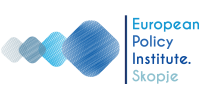 The European Policy Institute from Skopje, Macedonia is a think tank established in 2011 with a mission to provide a sound base for debate and solutions, targeting decision-makers and the wider public, through high-quality research and proposals on European policy. EPI regularly monitors the EU accession process of Macedonia within the wider regional contexts, evaluates the creation and implementation of EU-related policies and actively advocates for policy options. In time of stalemate of the EU accession process in the Republic of Macedonia, EPI manages to maintain focus on the content of the EU accession agenda and to link Macedonia’s progress to domestic political developments. EPI’s staff holds extensive experience in participating in and researching of national and EU policy making processes. The organisation possesses thorough understanding of the functioning of national and EU institutions, including established long standing links and contacts.
The European Policy Institute from Skopje, Macedonia is a think tank established in 2011 with a mission to provide a sound base for debate and solutions, targeting decision-makers and the wider public, through high-quality research and proposals on European policy. EPI regularly monitors the EU accession process of Macedonia within the wider regional contexts, evaluates the creation and implementation of EU-related policies and actively advocates for policy options. In time of stalemate of the EU accession process in the Republic of Macedonia, EPI manages to maintain focus on the content of the EU accession agenda and to link Macedonia’s progress to domestic political developments. EPI’s staff holds extensive experience in participating in and researching of national and EU policy making processes. The organisation possesses thorough understanding of the functioning of national and EU institutions, including established long standing links and contacts.
Institute Alternativa (IA)
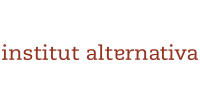 Institut Alternative (IA) is a non-governmental organization, established in September 2007 by a group of citizens with experience in civil society, public administration and business sector. Their mission is to contribute to strengthening of democracy and good governance through research and policy analysis as well as monitoring of public institutions performance. IA functions as a think tank or a research centre, focusing on the overarching areas of good governance, transparency and accountability. IA received the official certificate from the Ministry of Science to conduct research activities in the field of social science in 2013. IA has published more than 60 policy analyses (studies and briefs) that we have actively used as advocacy instruments with many recommendations successfully adopted by the relevant stakeholders.
Institut Alternative (IA) is a non-governmental organization, established in September 2007 by a group of citizens with experience in civil society, public administration and business sector. Their mission is to contribute to strengthening of democracy and good governance through research and policy analysis as well as monitoring of public institutions performance. IA functions as a think tank or a research centre, focusing on the overarching areas of good governance, transparency and accountability. IA received the official certificate from the Ministry of Science to conduct research activities in the field of social science in 2013. IA has published more than 60 policy analyses (studies and briefs) that we have actively used as advocacy instruments with many recommendations successfully adopted by the relevant stakeholders.
Group for Legal and Political Studies (GLPS)
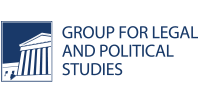 Group for Legal and Political Studies is an independent, non-partisan and non-profit public policy organization based in Prishtina, Kosovo. Their mission is to conduct credible policy research in the fields of politics, law and economics and to push forward policy solutions that address the failures and/or tackle the problems in the said policy fields. Through advocating the policy solutions derived from policy research, they aim to support four fundamental policy developments: a. to support the democratization of the polity with regard to institutional and substantive policy reform; b. to strengthen the rule-of-law capacity and performance via informed policy solutions and practical advocating strategies; c. to enhance the economic growth and development by promoting market strategies that increase the rate of growth and stability, and d. to help improve regional cooperation and Kosovo’s presence at the international level. They are dedicated to provide high-quality public policy research through prominent scholars drawn from international and European centres of excellence in research, while aiming to be globally competitive for quality research and impact in the fields of political science, law and economics.
Group for Legal and Political Studies is an independent, non-partisan and non-profit public policy organization based in Prishtina, Kosovo. Their mission is to conduct credible policy research in the fields of politics, law and economics and to push forward policy solutions that address the failures and/or tackle the problems in the said policy fields. Through advocating the policy solutions derived from policy research, they aim to support four fundamental policy developments: a. to support the democratization of the polity with regard to institutional and substantive policy reform; b. to strengthen the rule-of-law capacity and performance via informed policy solutions and practical advocating strategies; c. to enhance the economic growth and development by promoting market strategies that increase the rate of growth and stability, and d. to help improve regional cooperation and Kosovo’s presence at the international level. They are dedicated to provide high-quality public policy research through prominent scholars drawn from international and European centres of excellence in research, while aiming to be globally competitive for quality research and impact in the fields of political science, law and economics.
Institute for Democracy and Mediation (IDM)
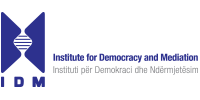 The Institute for Democracy and Mediation (IDM) is a non-governmental organization founded in 1999, with a vision to inform, develop and motivate for a democratic and prosperous society. IDM provides expertise, policy analysis, applied research and capacity building for key societal actors to drive reforms and engage in evidence based policy processes. The choice of activities to achieve the strategic objectives is an effort to go beyond one time delivery projects. They form part of a continuing struggle to strengthen shared values and efficient interactions across the broad spectrum of societal stakeholders. IDM’s mission is to advance societal capacities, generate and provide knowledge, skills and expertise for inclusive policy making and evidence-based alternatives to bolster democracy and sustainable development.
The Institute for Democracy and Mediation (IDM) is a non-governmental organization founded in 1999, with a vision to inform, develop and motivate for a democratic and prosperous society. IDM provides expertise, policy analysis, applied research and capacity building for key societal actors to drive reforms and engage in evidence based policy processes. The choice of activities to achieve the strategic objectives is an effort to go beyond one time delivery projects. They form part of a continuing struggle to strengthen shared values and efficient interactions across the broad spectrum of societal stakeholders. IDM’s mission is to advance societal capacities, generate and provide knowledge, skills and expertise for inclusive policy making and evidence-based alternatives to bolster democracy and sustainable development.
Foreign Policy Initiative BH (FPI BH)
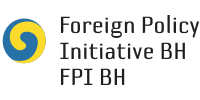 Foreign Policy Initiative BH is a non-governmental, non-profit, independent organization dedicated to investigating and analyzing foreign policy, international relations and international obligations of Bosnia and Herzegovina. Through its activities, FPI BH has established itself as one of the rare think tanks in BiH. It operates with a small core staff team, depending on the requirements of the work scope and number of projects being implemented at one time. Its highest executive body is the FPI BH Assembly which consists of the founding members of the organization. FPI BH also collaborates with over 40 (recurring) external experts that help form ad hoc working groups within the organization. The Foreign Policy Initiative was established in 2004 by the founding members, who form the Assembly of the organization. It is a non-profit, non-government organization, dedicated to advance and influence the debate and discussion among academics, activists, and policy and decision makers in Bosnia and Herzegovina.
Foreign Policy Initiative BH is a non-governmental, non-profit, independent organization dedicated to investigating and analyzing foreign policy, international relations and international obligations of Bosnia and Herzegovina. Through its activities, FPI BH has established itself as one of the rare think tanks in BiH. It operates with a small core staff team, depending on the requirements of the work scope and number of projects being implemented at one time. Its highest executive body is the FPI BH Assembly which consists of the founding members of the organization. FPI BH also collaborates with over 40 (recurring) external experts that help form ad hoc working groups within the organization. The Foreign Policy Initiative was established in 2004 by the founding members, who form the Assembly of the organization. It is a non-profit, non-government organization, dedicated to advance and influence the debate and discussion among academics, activists, and policy and decision makers in Bosnia and Herzegovina.
DONORS
WeBER 3.0
European Commission

Austrian Development Agency

Ministry of Public Administration of the Government of Montenegro

Co-funding of the WeBER 3.0 activities implemented by Institute Alternativa in Montenegro
WeBER 2.0
European Commission

Swedish International Development Agency – SIDA
through Balkan Civil Society Development Network – BCSDN

Royal Norwegian Embassy in Belgrade and German Marshall Fund of the U.S.
Open Society Foundation Serbia

Ministry of Public Administration, Digital Society and Media of the Government of Montenegro

SMART Balkans – Civil Society for Shared Society in the Western Balkans

German Agency for International Cooperation GmbH – GIZ

SMART Balkans – Civil Society for Shared Society in the Western Balkans

Swedish International Development Agency – SIDA, Albania

WeBER
European Commission

Kingdom of the Netherlands


